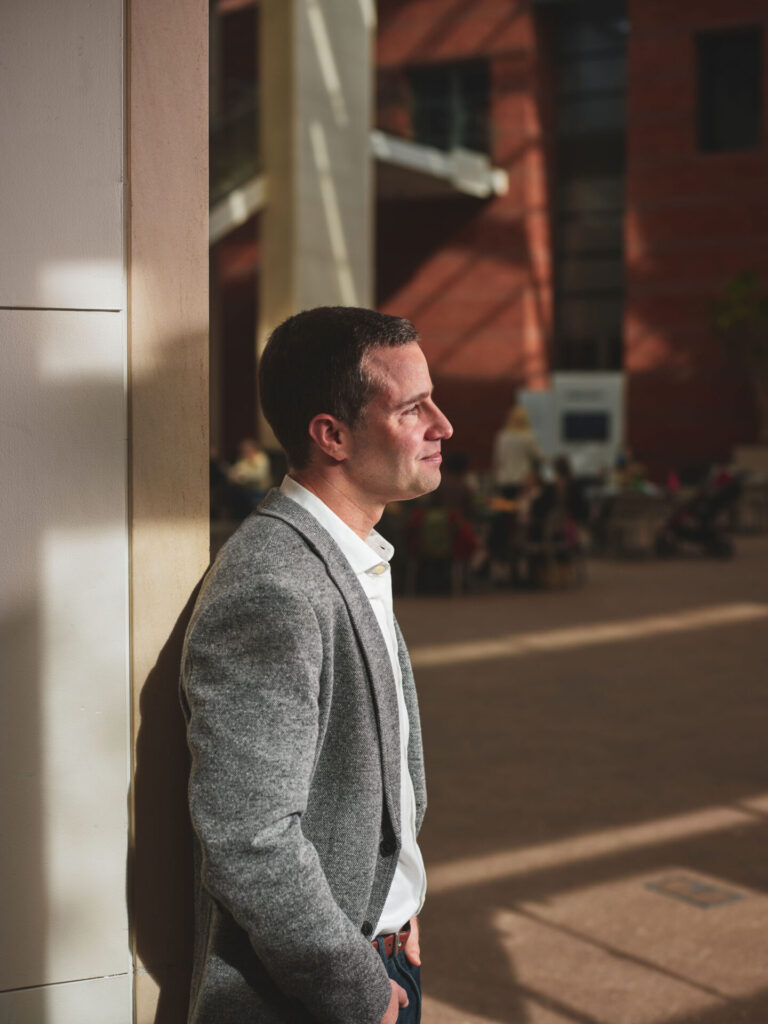Creating places for people to live in and around walkable neighborhoods and downtowns seems like a no-brainer. But zoning codes, the stigma around affordable housing, and public resistance to new development often stand in the way. That’s why a new Salem-based organization called Re:Main is aiming to change that.
“We’re building out a platform to enable us to unlock what’s called infill housing production in places where services and amenities like shops and restaurants already exist,” says Jonathan Berk, Re:Main’s founder.
Infill housing taps underused or vacant land within existing urban and other already developed areas to create new housing options. Berk, an attorney by training, serves on the city of Salem’s planning board, as well as on the board for the nonprofit Abundant Housing Massachusetts. In his work on placemaking and urban development throughout the Northeast and Midwest, Berk said he had an “aha moment” of realization about the way cities and towns are often developed.
“We’re really not building our communities, our neighborhoods in a way that’s conducive to a strong quality of life,” he says. “They’re not being built in the most sustainable ways from a physical standpoint or environmental standpoint. They’re not being built in a way that supports our small businesses.”
They’re also often not built in a way that takes advantage of broader regional systems, like the commuter rail, to help people access job centers while also limiting traffic and creating more walkable cities and towns.
In addition, Berk says many North Shore residents want more housing options that enable them to downsize. They want to move out of expensive, single-family homes and into housing that puts them within walking distance to a bakery, the doctor’s office, grocery stores, restaurants, and other amenities. But such options don’t always exist.
“Forget about who will come into these communities for new housing,” Berk says. “It’s providing housing for existing residents.”
Berk points to Beverly as an example of a city that’s done a lot to create housing near the commuter rail and downtown, and sees additional potential in places like Salem, Marblehead, Ipswich, and Gloucester.
While a lot of housing development has focused on either luxury or affordable housing, zoning rules have made it difficult to build what Berk calls the “missing middle housing: That townhome, duplex, [or] quadplex housing.”

Lindsay Randall, co-founder of the housing advocacy group Homes for All Ipswich, says this kind of work brings forward the idea that “housing is a human right.” She hopes to work with Berk on efforts to bring new housing options to the region that find a balance between maintaining historical integrity and the current needs of the people who live here.
“We need to support our community now and in the future,” she says. “Creating housing is not going to drastically change our communities into something we don’t want or we can’t recognize.”
Although zoning restrictions are often a major barrier to new housing, they’re not the only barrier.
“A lot of communities have gone through housing production plans and rezoning efforts, but haven’t seen a lot of housing production in those communities for a lot of different reasons,” Berk says.
One solution is simply getting the right people and organizations connected. While Re:Main is still in its early stages, Berk hopes the organization can help facilitate infill housing by partnering with municipalities to identify infill development sites and opportunities, then pairing those groups with regional builders, developers, and capital sources that are interested in in working together on housing efforts.
“Re:Main is a platform to surface some development opportunities; support a more robust, small development ecosystem in Massachusetts; and diversify funding opportunities for those small developers,” he says.

